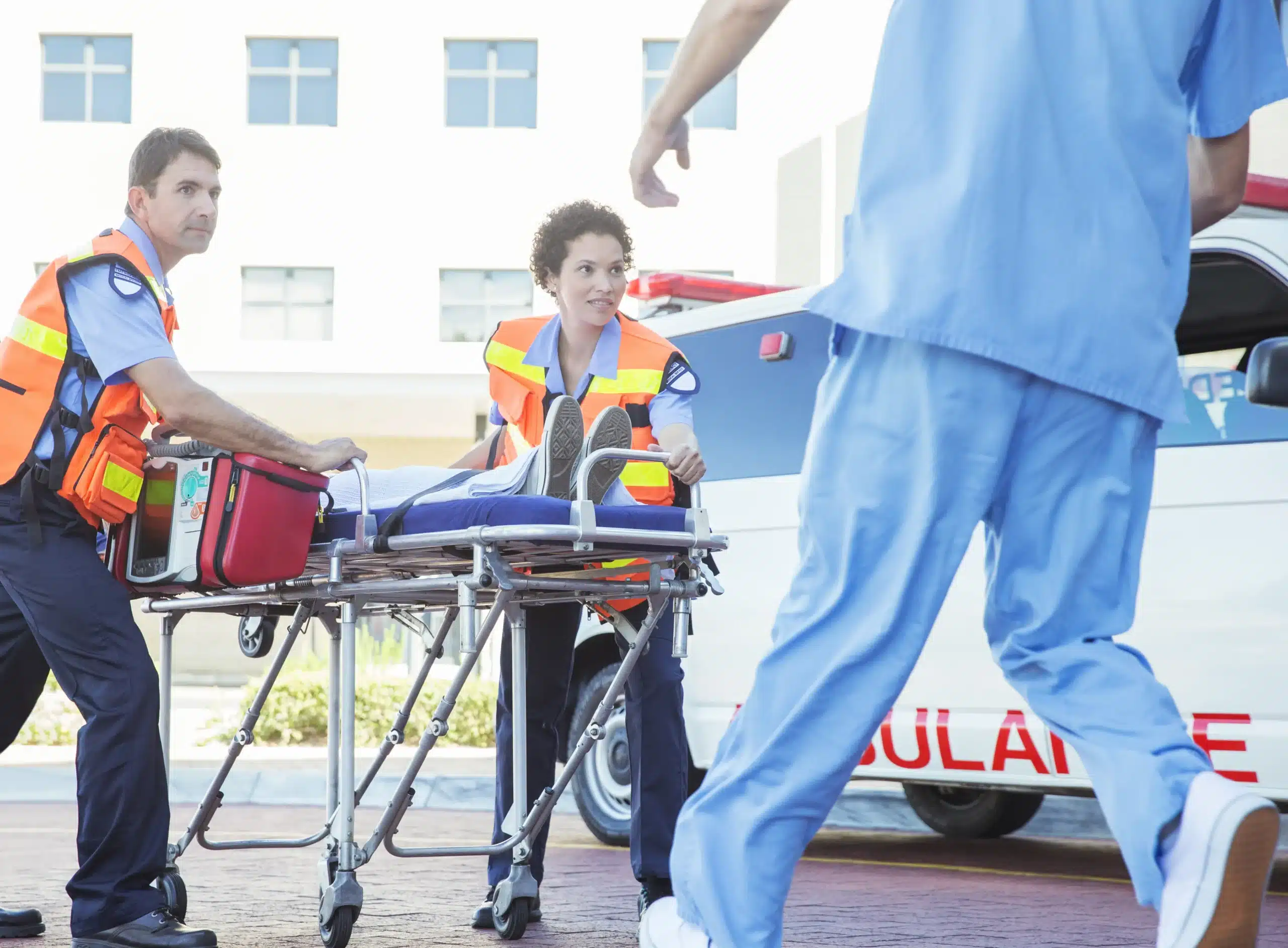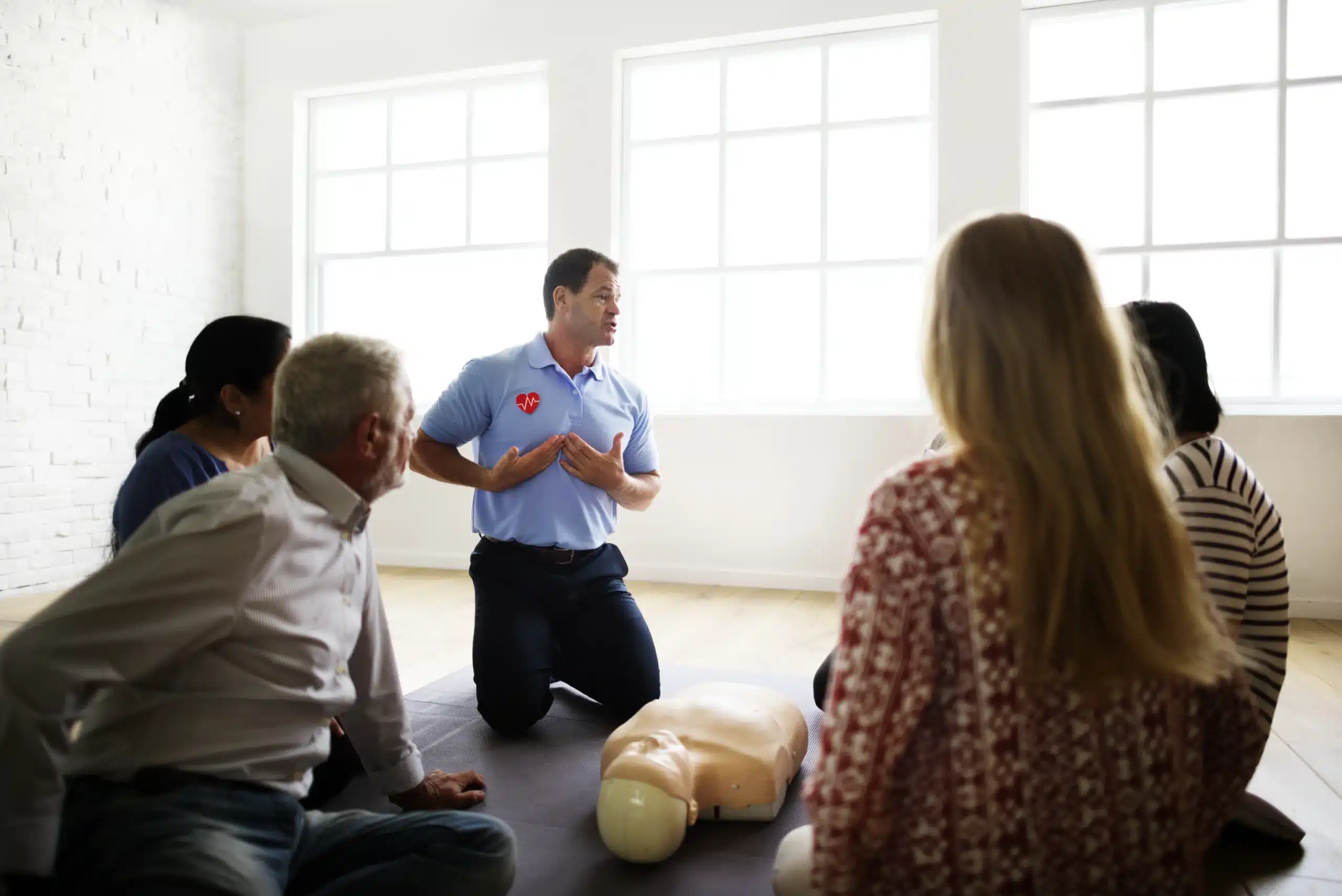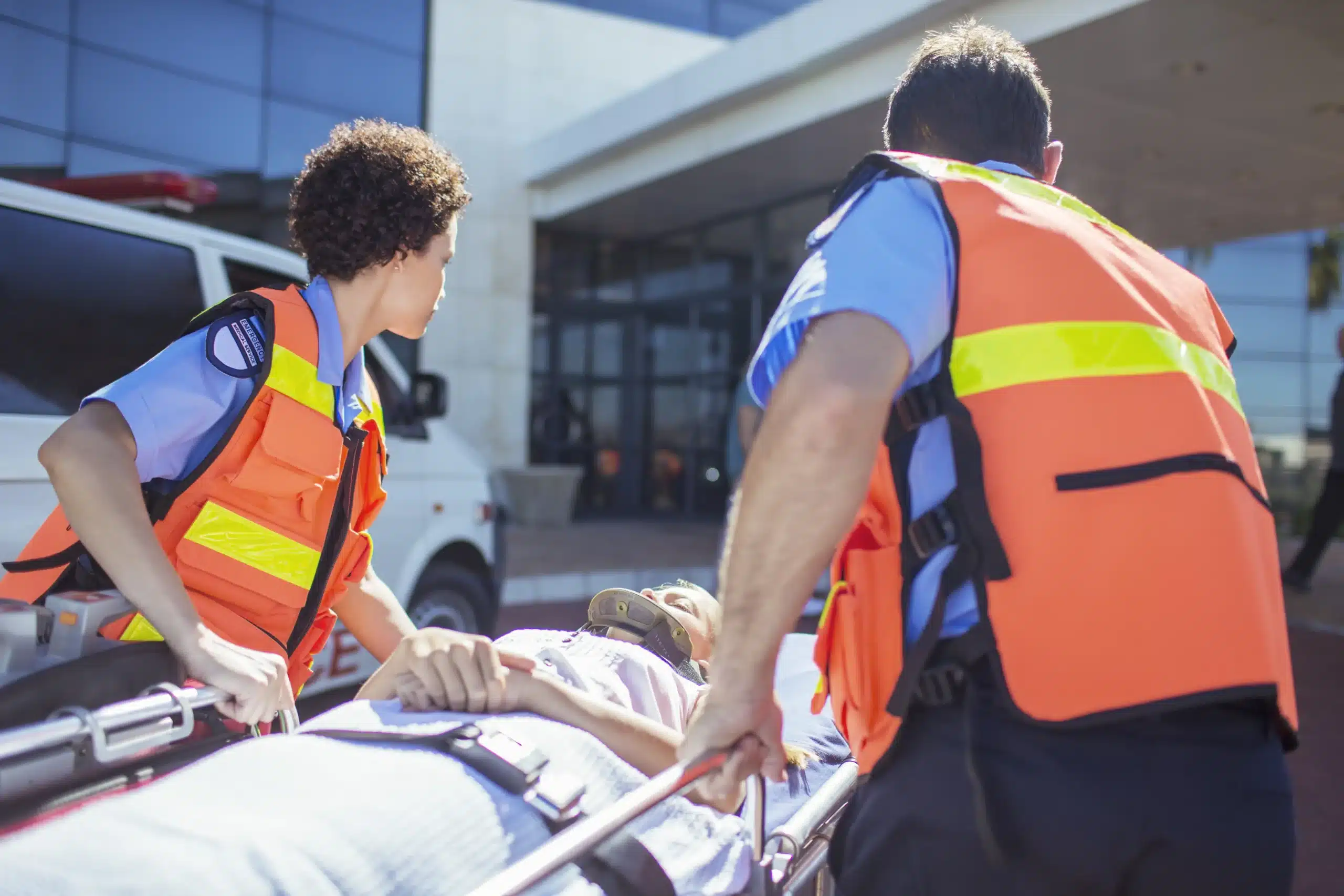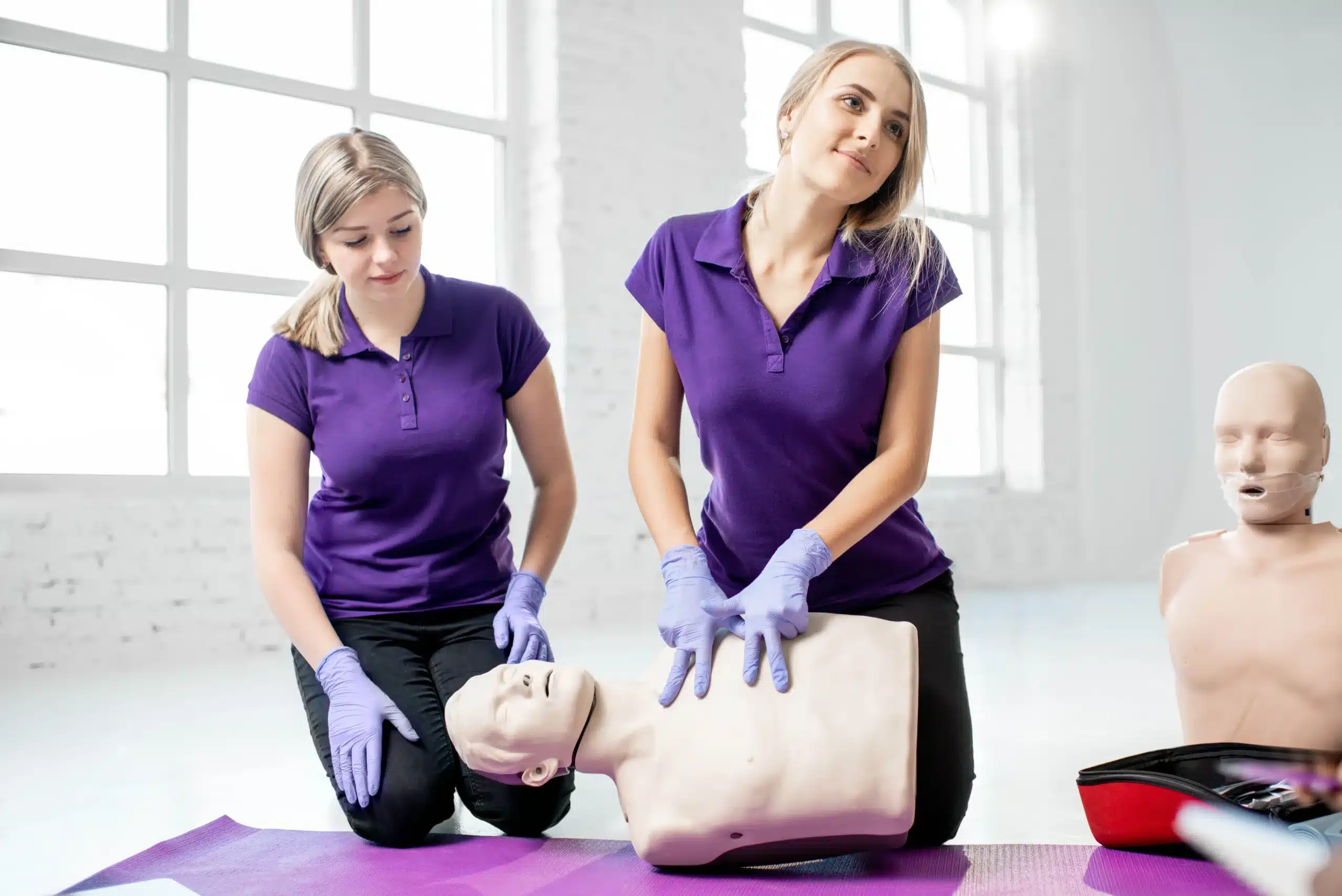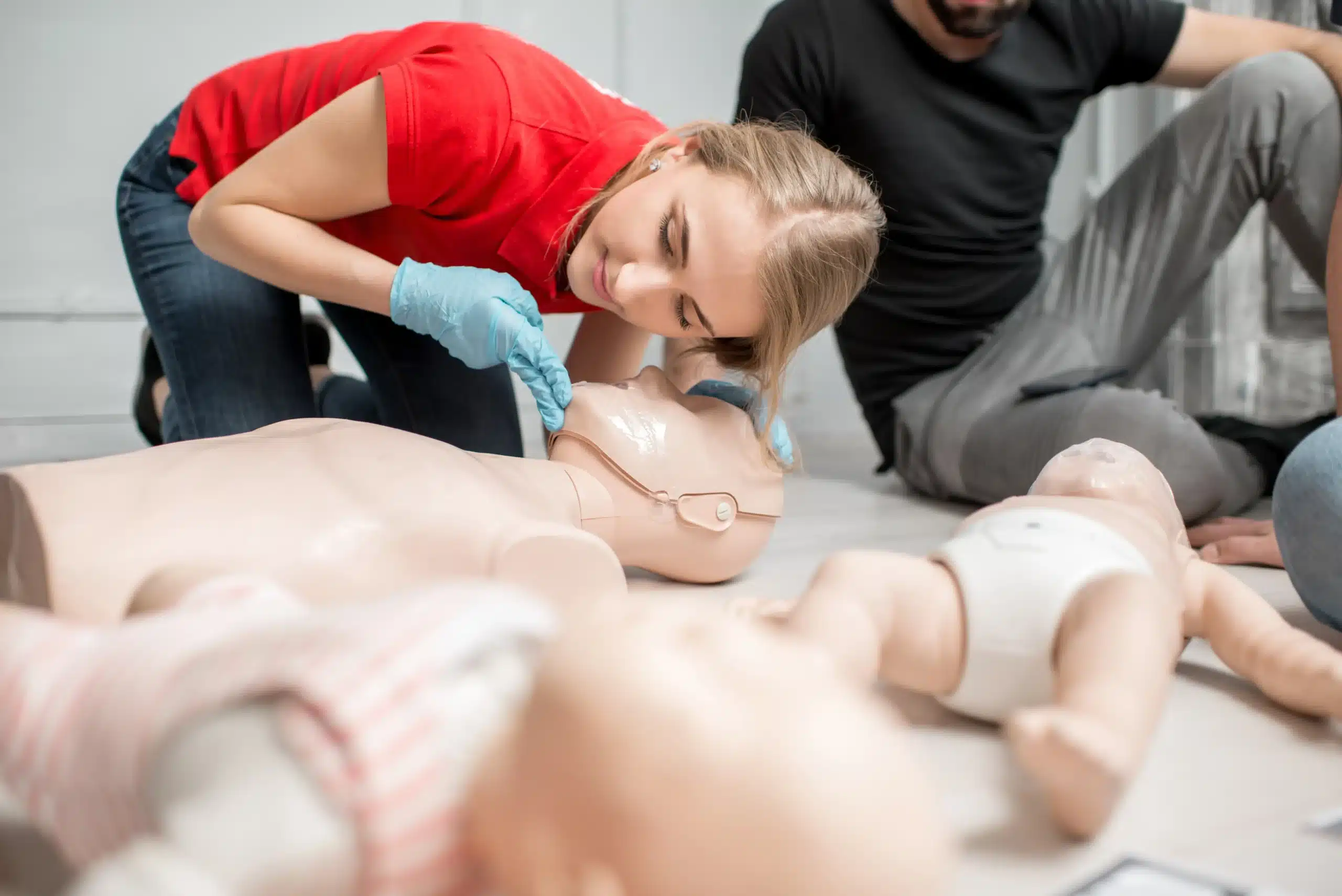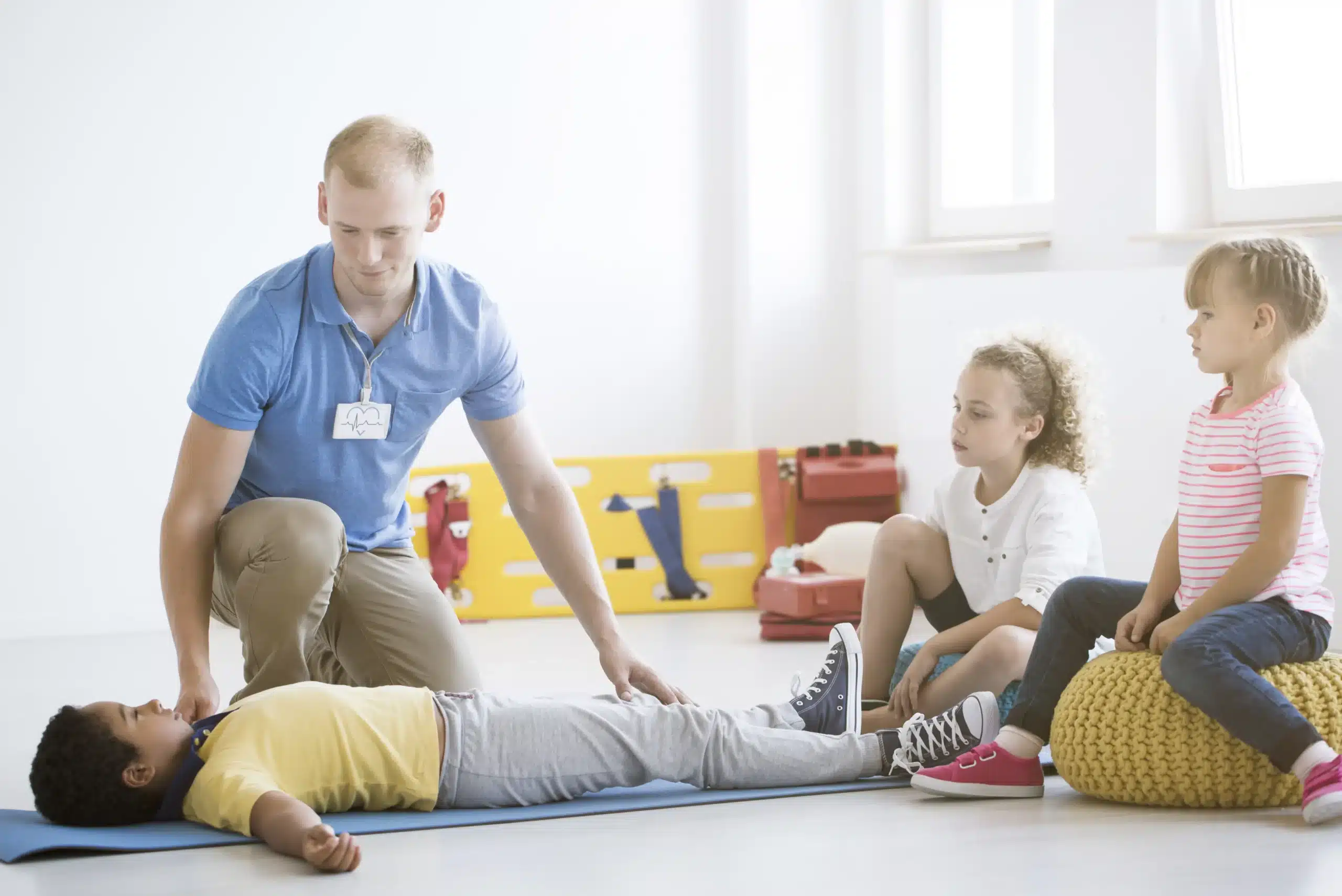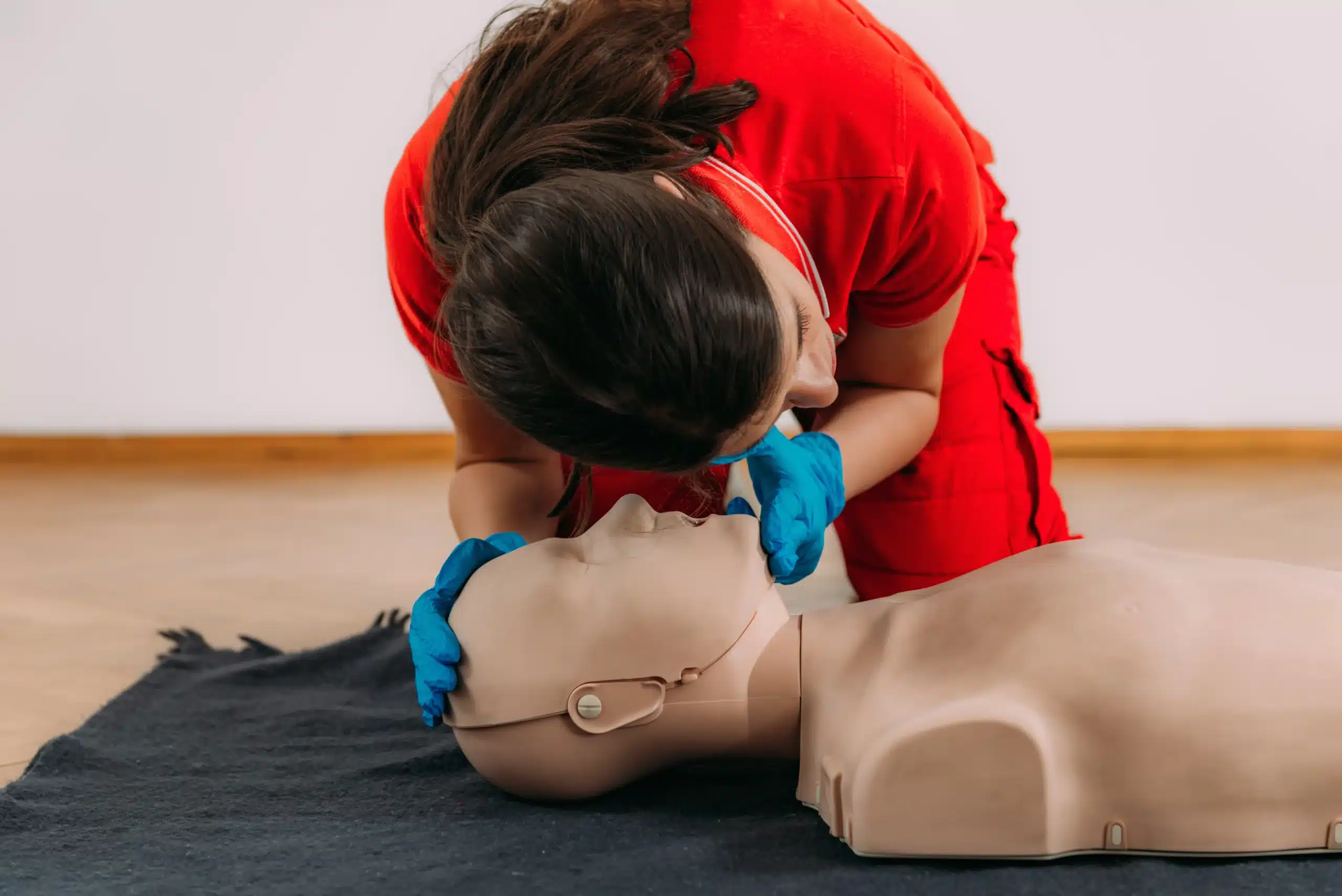Serving the Lodi community as a healthcare provider requires dedication, skill, and a commitment to continuous improvement. When it comes to CPR, maintaining peak performance is non-negotiable. RQI in Lodi offers a modern approach to CPR training, ensuring your skills are always sharp and ready for any emergency. This program empowers you with the knowledge, practice, and confidence to deliver the highest quality care when it matters most. Let’s delve into how RQI is changing the landscape of CPR training in Lodi.
Key Takeaways
- RQI improves CPR skills and confidence: Frequent practice with real-time feedback helps healthcare professionals in Lodi maintain proficiency and feel prepared for emergencies.
- RQI training fits your schedule: The flexible, blended learning format combines online learning with short, convenient in-person skills sessions.
- RQI offers valuable benefits: From improved patient outcomes to cost savings for facilities, RQI provides a strong return on investment for Lodi healthcare providers.
What is RQI and Why It Matters for Lodi Healthcare Professionals?
RQI, or Resuscitation Quality Improvement, represents a significant advancement in CPR training, especially for healthcare professionals in Lodi. It moves away from traditional, infrequent CPR courses and adopts a more modern, skills-based approach. This shift has important implications for patient care and outcomes within our community.
What is Resuscitation Quality Improvement?
Resuscitation Quality Improvement (RQI) is a program created by the American Heart Association that focuses on consistent, high-quality CPR skills. Unlike traditional CPR classes, RQI uses a blended learning approach. It combines online learning modules with hands-on practice sessions using advanced simulation stations. This allows healthcare providers to refresh their skills regularly, leading to better retention and improved performance during real-life emergencies. You can learn more about the RQI program details and frequently asked questions.
Why RQI Matters for Patient Outcomes in Lodi
RQI is particularly valuable for healthcare professionals in Lodi because it addresses the challenge of maintaining crucial CPR skills in busy work environments. Regular practice and feedback are essential for confident and effective CPR delivery. Hospital case studies show improvements in CPR performance and reductions in training costs after implementing RQI. This translates to better patient outcomes and more efficient use of resources within our local healthcare system.
How RQI Addresses Skill Decay and High-Pressure Environments
One of the biggest challenges with traditional CPR training is the decay of skills over time. RQI tackles this head-on by providing frequent, low-dose practice sessions. Working with manikins that offer feedback helps healthcare professionals maintain their competency and build muscle memory. This consistent reinforcement is especially crucial in high-pressure emergency situations, where quick, effective action can be life-saving. RQI helps ensure Lodi healthcare providers are always prepared to deliver the highest quality CPR when it matters most.
Find RQI Training Programs and Providers in Lodi
AHA-Certified Courses
The American Heart Association RQI (Resuscitation Quality Improvement) program is a popular and efficient way for medical and healthcare professionals in Lodi to get their official AHA BLS, ACLS, and PALS certifications. These certifications are essential for high-quality patient care and meeting regulatory requirements.
Local RQI Training Providers
Lodi CPR Classes
Lodi CPR Classes offers AHA-certified BLS, ACLS, and PALS courses through the RQI program. They focus on convenient, high-quality training for healthcare providers in Lodi. Learn more about their RQI courses.
Safety Training Seminars
Safety Training Seminars provides AHA-certified CPR, BLS, ACLS, PALS, and First Aid courses in Lodi. Known for excellent customer service and competitive pricing, they are a convenient option for individuals and groups seeking certification. See their low price guarantee.
Other Local Options
While these are two prominent providers, it’s always good to explore other local training centers. Consider factors like scheduling, class size, and instructor experience. Finding the right program is crucial for staying up-to-date on the latest CPR techniques. Search online for “RQI training near me” or check with local hospitals and medical facilities for additional options.
Available Course Types and Certifications
RQI courses typically involve a short online component (a few hours) and a hands-on skills test with a voice-assisted manikin (VAM). This blended learning approach allows for flexible learning and practical skill application. After completing both components, participants receive their official AHA certification cards, valid for two years.
Experience RQI Training: Format and Benefits
RQI training blends online learning with short, hands-on practice sessions. This flexible approach makes it easier to fit crucial skills training into your busy schedule. Let’s explore the format and key benefits.
Explore Online Components and Flexibility
The RQI program, developed by the American Heart Association, offers a convenient way for medical professionals in Lodi to earn and maintain their AHA BLS, ACLS, and PALS certifications. The combination of online modules and brief in-person skills sessions makes it manageable to stay current, even with a demanding work life. This blended learning approach allows you to complete the cognitive components at your own pace, anytime, anywhere.
Practice with Voice-Assisted Manikins
RQI training uses high-tech, voice-assisted manikins that provide real-time feedback. These sophisticated manikins guide you through the steps, helping you refine your skills and build muscle memory. This interactive element ensures you’re practicing correctly and consistently.
Improve Skill Retention with Frequent Practice
Unlike traditional CPR training that typically happens every two years, RQI uses a “low-dose, high-frequency” model. You’ll engage in short practice sessions regularly, usually quarterly. This method reinforces your skills and improves long-term retention, leading to greater competency and confidence during real-life emergencies.
Get Certified Immediately
You’ll receive your American Heart Association BLS, ACLS, or PALS certification immediately upon successfully completing both the online and in-person components. No waiting for processing — you’re certified and ready to put your skills to use.
Build CPR Skills and Confidence
RQI training not only hones your technical skills but also increases your confidence in performing CPR. Knowing you’ve engaged in consistent, up-to-date practice helps you feel prepared and empowered to respond effectively in critical situations. Research shows a significant rise in provider confidence after completing RQI training.
RQI vs Traditional CPR Training: Key Differences
RQI represents a significant shift in how healthcare professionals maintain their CPR skills. Unlike traditional CPR training, which typically involves a one-time course every two years, RQI emphasizes continuous learning and improvement. This offers several key advantages, ultimately leading to better patient outcomes and increased confidence among providers.
Continuous Learning vs One-Time Courses
Traditional CPR training often involves a single course, after which skills can decline. RQI, however, uses a “low-dose, high-frequency” model. This means short, frequent practice sessions, typically quarterly, to reinforce skills and improve retention. This ongoing practice helps healthcare professionals maintain a higher level of proficiency than with traditional, one-time courses. Think of it like exercising regularly to stay fit, rather than cramming for a fitness test every two years. This consistent approach helps providers stay sharp and ready to respond effectively in emergencies.
Get Real-Time Performance Insights
Another key difference is the feedback. RQI training uses advanced manikins with built-in sensors that offer real-time feedback on compression depth, rate, and recoil. This immediate feedback allows providers to adjust their technique and improve their performance on the spot. Traditional CPR training often lacks this level of detailed, personalized feedback. RQI manikins provide the data-driven insights needed to truly master high-quality CPR, ensuring consistent and effective technique.
Learn with the Low-Dose, High-Frequency Model
The low-dose, high-frequency model of RQI makes it easier to fit training into busy schedules. Short, regular practice sessions are more manageable than lengthy, infrequent courses. This flexible approach allows healthcare professionals to maintain their skills without disrupting their workflow. It also reduces the pressure associated with infrequent, high-stakes testing, creating a more relaxed and supportive learning environment. This allows providers to focus on mastering the skills, rather than stressing over a single test.
Improve Patient Outcomes
The goal of both RQI and traditional CPR training is to improve patient outcomes. By emphasizing continuous learning, real-time feedback, and a flexible training schedule, RQI helps healthcare professionals achieve and maintain a higher level of CPR proficiency. This translates to increased confidence and better preparedness during real-life emergencies, ultimately leading to improved patient outcomes. The more comfortable and skilled a provider is with CPR, the better the chances of a positive outcome for the patient. RQI empowers healthcare providers to deliver the best possible care when it matters most.
Cost, Value, and Accessibility of RQI Training in Lodi
RQI training offers significant value for healthcare professionals, but understanding the costs, benefits, and accessibility is key to making informed decisions. This section breaks down what you need to know about RQI training costs and the overall value it brings to Lodi healthcare providers.
Explore Pricing and Discounts
Safety Training Seminars offers a low-price guarantee for American Heart Association courses, including ACLS, BLS, and PALS, which often integrate with RQI programs. Many providers offer group discounts or package deals when combining RQI with other certifications. Contact providers directly to learn more about specific pricing and available discounts.
See the ROI for Healthcare Professionals
While there’s an upfront cost for RQI training, consider the long-term return on investment. The RQI program equips healthcare providers with the skills and confidence to deliver high-quality CPR, directly impacting patient outcomes. This translates to improved patient care and can contribute to a more positive reputation for healthcare facilities.
Find Incentives and Continuing Education Credits
Many RQI programs offer continuing education credits, allowing healthcare professionals to maintain their licenses and certifications. The RQI eCredential verifies competency in high-quality CPR skills, further demonstrating your commitment to providing excellent patient care.
Discover Flexible Scheduling Options
RQI training often incorporates blended learning, combining online modules with in-person skills sessions. This flexible approach accommodates busy schedules, allowing healthcare professionals to complete the coursework at their own pace and conveniently schedule hands-on practice. This blended learning model makes RQI training accessible even for those with demanding work schedules.
Overcome Resource Limitations
RQI training utilizes specialized manikins that provide real-time feedback on CPR performance. These manikins allow for consistent practice and skill refinement, even in facilities with limited resources. This ensures that healthcare providers maintain their proficiency in high-quality CPR.
RQI Training Feedback and Effectiveness
RQI training has garnered positive feedback from healthcare professionals and demonstrated significant effectiveness in improving CPR skills and patient outcomes. Let’s explore the feedback and effectiveness of this innovative training method.
Hear From Healthcare Professionals
Nurses and other healthcare providers appreciate the frequent practice and immediate feedback offered by RQI training. As one charge nurse noted, “RQI manikins provide the direct feedback and regularity of practice employees need to improve and maintain high-quality CPR skills.” This consistent reinforcement helps build confidence and proficiency in delivering effective CPR. Knowing they have the skills to respond confidently in a critical situation empowers healthcare professionals to provide the best possible patient care. RQI training equips healthcare providers with the tools and practice they need to maintain their skills and respond effectively in emergencies.
Learn About Impact on Skill Retention and Performance
One of the key benefits of RQI training is its impact on skill retention. Traditional CPR training often involves lengthy sessions followed by infrequent practice, which can lead to skill decay. RQI’s low-dose, high-frequency approach combats this by incorporating regular, short practice sessions. This focused practice with voice-assisted manikins maximizes learning and helps healthcare professionals retain crucial CPR skills. The immediate feedback provided during these sessions allows for quick correction and reinforcement of proper techniques, leading to improved performance in real-life emergencies. This approach ensures that healthcare providers maintain their skills and can deliver high-quality CPR when needed.
Discover Facility-Wide Benefits and Cost Savings
Implementing RQI training can lead to significant benefits for healthcare facilities. A study examining the impact of RQI on a community hospital found improvements in staff CPR performance, positive staff feedback, and cost savings compared to traditional BLS training. These facility-wide improvements demonstrate the value and cost-effectiveness of RQI training. By investing in RQI, hospitals can enhance patient care, improve staff satisfaction, and optimize their training budgets. This makes RQI a smart investment for healthcare facilities looking to improve patient outcomes and staff proficiency.
Choose and Enroll in the Right RQI Program in Lodi
So, you’re ready to enhance your CPR skills with RQI training? Great! Choosing the right program and provider is key to a successful learning experience. This section helps you find the perfect fit for your needs in Lodi.
Consider These Factors When Selecting a Provider
The American Heart Association RQI (Resuscitation Quality Improvement) program offers a modern and efficient path to American Heart Association BLS, ACLS, and PALS certification. When choosing an RQI provider in Lodi, consider factors like location, schedule flexibility, and cost. Look for a provider offering convenient online components and hands-on practice sessions. Safety Training Seminars is one local option committed to providing high-quality, affordable training. Consider checking with Lodi CPR Classes for their RQI course offerings as well.
Ask These Questions Before Enrollment
Before enrolling, ask potential providers about their instructor qualifications, the availability of practice equipment (like voice-assisted manikins), and the frequency of skills checks. Traditional CPR training sometimes lacks the detailed feedback necessary for truly effective CPR. Ask how the RQI program addresses this and provides personalized guidance. Also, inquire about the provider’s overall approach to ensuring you master high-quality CPR skills.
Get Started with RQI Training
RQI training typically involves quarterly sessions designed to reinforce essential CPR skills. This consistent practice helps healthcare providers maintain their proficiency and confidence in life-saving techniques. Look for programs that offer a blend of online learning and in-person practice. This blended approach allows you to learn at your own pace and apply your knowledge in a realistic setting. You can explore resources like CPR Toledo to learn more about the benefits of this combined approach.
Find Community Support and Engagement Opportunities
RQI training often fosters a sense of community among healthcare professionals. Connect with your peers, share best practices, and learn from each other’s experiences. RQI programs often leverage the latest learning technology and simulation stations, bringing dynamic training directly to the provider. This innovative approach ensures providers have access to cutting-edge resources and training methods. Articles like this one from the CPR Blog highlight the benefits of this modern approach. Engaging with the RQI community can further enhance your learning journey and professional development.
Related Articles
- Why CPR is Important in Healthcare – Stockton CPR Classes Blog
- RQI Classes in Stockton, CA – Stockton CPR Classes
- Online CPR Classes in Lodi: Your Complete Guide – Stockton CPR Classes
- Pediatric Advanced Life Support (PALS) in Tracy – Stockton CPR Classes
- CPR Courses in Stockton: Your Complete Guide – Stockton CPR Classes
Frequently Asked Questions
How does RQI differ from traditional CPR training? RQI emphasizes short, frequent practice sessions, typically quarterly, using high-tech manikins with real-time feedback. Traditional CPR training usually involves a longer, one-time class every two years, which can lead to skill decay. RQI’s consistent reinforcement helps maintain proficiency and build confidence.
What are the benefits of RQI for healthcare professionals in Lodi? RQI helps Lodi healthcare professionals maintain top-notch CPR skills through regular practice and feedback. This leads to increased confidence in emergency situations, better patient outcomes, and more efficient use of resources within the local healthcare system. It also offers continuing education credits and demonstrates a commitment to high-quality patient care.
How much does RQI training cost, and is it worth it? While costs vary, many providers offer discounts and packages. Consider the long-term return on investment: RQI equips you with life-saving skills, improves patient care, and can enhance your professional reputation. It’s a valuable investment in your career and the well-being of your patients.
How can I find RQI training programs near me in Lodi? Search online for “RQI training near me,” check with local hospitals and medical facilities, or contact providers like Safety Training Seminars and Lodi CPR Classes directly. Be sure to ask about instructor qualifications, equipment availability, and the overall approach to ensuring you master high-quality CPR.
What does the RQI training process involve? RQI training typically combines online learning modules with hands-on practice sessions using voice-assisted manikins. This blended learning approach allows for flexibility and personalized feedback. You’ll receive your AHA certification immediately upon successful completion of both components.
